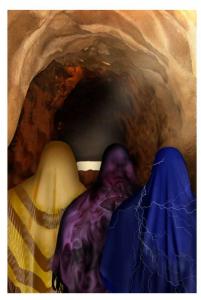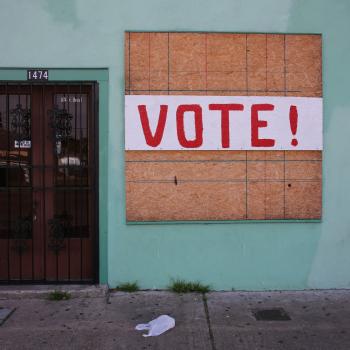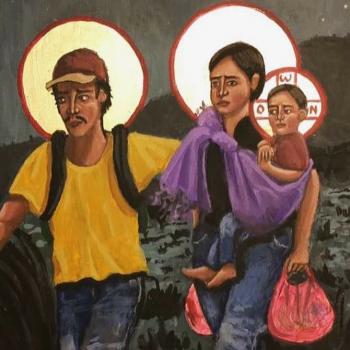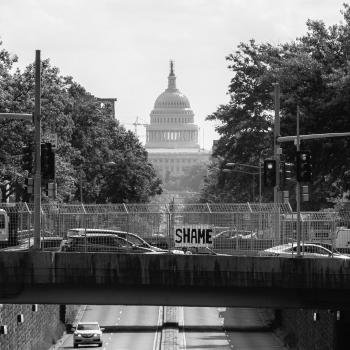“White friends, from a basic to do list standpoint: displace. Sit in the pain. Invest in one relationship. Give. Share. Retweet. Read. Listen. Get to know the heart language of Black Americans. I cannot imagine how different the Ferguson protests would look if even half of the Ferguson police force took this advice.” ~Grace Sandra
Today, a friend of mine linked to a Deeper Story blog authored by Grace Sandra, in which she – a Black American – asks her white readers to do this simple thing: Sit, listen, invest, and “learn the heart language” of our black neighbors. She implores us to displace ourselves, to get beyond our privileged lives. To understand the systemic injustice at the heart of the causes we are often quick to champion (and even quicker to forget or abandon).
This comes on the heels of having just learned from our next-door neighbor that last week, just half a mile down the street at our local laundromat, he was handcuffed, maced, and booked by local transit police for having “stood too close to the sidewalk” while waiting for his wife to finish up a load of laundry.
The seven officers who detained him also relieved him of his earrings, hat, wallet, and the prednisone and amoxicillin prescribed for the treatment of an ongoing infection. Upon release from the precinct at which he was booked and charged with resisting arrest, public disturbance, and assaulting an officer (none of which actually happened according to the myriad video recordings of the incident), he was told most of his belongings were, for some unknown reason, taken to another precinct. They still haven’t returned his medication to him, so he had to go back to his doctor and provide proof of arrest to get another prescription. Because that’s not humiliating.
It goes without saying (but I’ll say it anyway): My neighbor is a Black-American.
I have another friend I’ve been traveling life with. She’s a 31-year-old woman on the cusp of her 32nd birthday. She possesses an undergrad degree in sociology and a Masters in Divinity, and is one of the smartest, most perceptive, intuitive people I’ve ever met. An old soul, a generous and loyal friend, a gifted writer and poet, and a survivor of incest that began when she was just four years old and continued over the course of nearly a decade at the hands of more than one family member. When she finally found the strength to tell her youth pastor, he went back to her parents, rather than the police, who assured him, “it’s taken care of,” and then shamed my friend into never speaking again. They made sure she believed that the abuse was her fault – if, in fact, it even really happened; That sharing family secrets brought shame and disgrace upon them. And to this day, they diligently drive home the lie that all family tension is her doing, her fault, and, in not-so-many-words, they’d all be better off without her.
It would be incidental if it weren’t so utterly, horrifyingly tragic to note that after escaping home she was sexually assaulted by a stranger during a summer internship.
A prisoner in and to her own mind full of god-awful memories, to the lies that this is all there is and all she’ll ever be worth, it’s no surprise to me that she’s taken relief in the only conceivable means by which the shameful secrets can be kept from outsiders and still flushed from own self:
She cuts.
“If you have come to help me you are wasting your time. But if you have come because your liberation is bound up with mine, then let us work together.” ~Lilla Watson
Try as I might, I cannot begin to fathom what strength, courage, and ferocious tenacity it must take to keep on living when you’ve endured what these two friends of mine have endured.
And I wonder what the hell can I possibly do!?
I am a white woman born and raised in Middle America by loving parents in a Christian home.
I have known literally zero adversity.
These people are my friends. I long desperately for their liberation. But I don’t have the first clue what that means or looks like in their contexts.
And sometimes, I admit: In my white-middle-class-American brain, I get exceedingly frustrated. I want to help carry the burden most of the time, but I also want the burden to go away as easily as my burdens go away.
I get impatient and snarky.
Some days I just want to scream, Let go! Just let go! Can’t you just let it go and move on!?
Because, in those moments, I don’t know what I’m saying.
I am a selfish woman who only wants to be [this] bothered by a friend in need… not {that} bothered.
But mostly, I am weary and overwhelmed by everything I’m invited to help carry, and I feel too weak and tired and bone-dry of anything helpful to give.
It is in those moments when I say to God, “Come on! Can’t I catch a break here? Just a day to breathe?”
And He gently, lovingly, so kindly whispers,
“Amy. Beloved Amy. No.”
If I want to help – if I really long for their liberation the way I say I do – I have to bind my own liberation to theirs. I have to get in the thick of it and stay there. I have to live with it every second of every day the way they do.
I have to activate my imagination to feel what it might be like to be bound, maced, and detained because of my skin color, knowing that any resistance on my part and any immediate accusations of injustice, will be written down as another charge against me. If I cannot imagine it, I can at least listen and affirm and stand in solidarity. I can look in my neighbor’s eyes, see the black, mace-scab rings that make him look like he’s wearing eyeliner, and I can believe him. I can acknowledge that it’s real, that it really happened to my next-door neighbor, and that it is utterly wrong.
I can let my friend share what she needs to share, dark and wretched as it may be. I can weep with her for the childhood and innocence that were stolen by the very people who should have protected her. I can affirm that she is more than what was done to her; that yes, even now, while she wades through the hell of her history, she is worthy of love and friendship and belonging. I can remind her, sometimes a thousand times a week, that it was not her fault; that she is beloved and beautiful and has much to offer this world; that her immeasurable worth and value stand independent of and uncorrupted by any horrors wrought against her; that she is fearfully and wonderfully made; that she did not deserve what was done to her; that she is innocent; that she is not alone, but tethered to me. I can believe her.
Given the weight and thickness and painfulness of the chains that still bind them, I can do this one small thing of standing with them so they’re not alone. I can stand with an aching back, and chisel away at the chains. And we can be friends who are, together, more than the oppression.
This is what it means to share one another’s burdens:
To get dirty.
To be displaced.
To bear their injustices as my own.
It is to deliberately abandon the comfortable, clean, safe walls I was quite fortunately born into and set up camp in the wide-open killing field where they’re still fighting for their lives, and make a life there while we wait and work for better.
This is what it means to bind my own liberation up with theirs:
I will not rest until they do.
I will not be at peace until they are.
I will not be free until all chains are broken, all captives freed, and all survivors are celebrating and living.
And until then…
We will suffer, grieve, grow weary and exhausted…
We will laugh, play, and be a community.
We will be displaced and we will fight…
Together.












